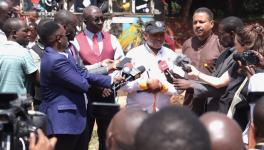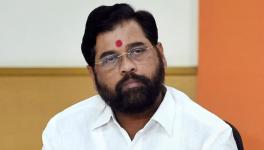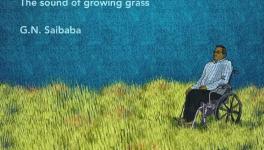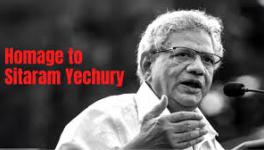Query for Indian State: Can Democracy Work Without Political Participation?
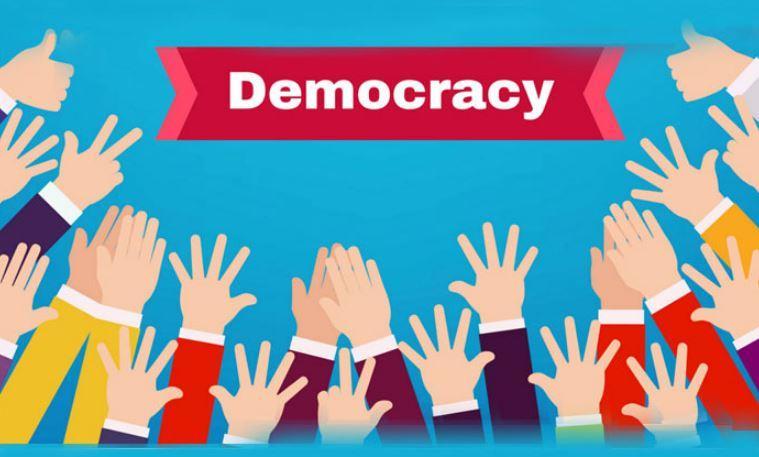
Talking about “keeping things out of politics” is a growing trend in India. This is not a reference to the political pacifism of certain well-off castes, which does create adverse consequences for democracy, but the depoliticisation project of the state—the very embodiment of politics—vis-à-vis societal issues. Be it students who harbour political ambitions, or lately, the farmer protests—all seem to have invited the state’s reprimand that social progress and “politics” do not go hand in hand. The notion that politics is inherently cynical and best not interacted with has significantly flared up. “Don’t make it political” is used as a trump card to shut people down instantly.
The farmer protests that started in September 2020 were the largest movement in 21st-century India. The protesting farmers demanded the repeal of the three controversial laws hastily passed in Parliament and legally guaranteed Minimum Support Prices (MSP) to protect them from corporates. It even became a fertile ground to create future political representatives. However, we saw the government, media and other stakeholders constantly shifting the inherently political act of protests outside the political sphere.
Mass media coverage after the Centre repealed the farm laws in late 2021 are an instance of how depoliticisation occurs in the current political climate. On 19 November 2021, days after the repeal, Republic TV, which claims to be amongst the most-watched English news channels, aired a debate with the tag-line, “What will the Opposition politicise now?” Another channel, Times Now, said, “Politics wins, but India loses?” Throughout the protest, farm union leaders were asked if the ulterior motive of their demonstrations was to “join politics”. The question gained enough significance that even the farm collectives split after the protests—one bloc has sought to pursue active politics. In contrast, the other unions remain pressure groups, and they have argued that a protest has a larger purpose that is “above” politics. The irony is that the cause and trigger for their protest was a law passed by Parliament, which is a gathering of political representatives.
It is worth contesting this dense understanding of “politics” that, by default, paints it in darker shades. Active political commitment and extensive politicisation are essential elements of a thriving democracy. They help recognise particularistic grievances of communities, aid resource redistribution and provide representation in power. Can a democracy work without political participation and representation? Members of society are never wrong when they seek political representation for their issues electorally in a democracy. Suppose people even implicitly accept the poor understanding of politics of the current dispensation and its supporters, and consequently “keep out” of it or stick to “apolitical demands”. They will then inevitably get pushed into a trap that reinforces the misunderstood notion that progress and politics are distinct and separate aspects of democracy. The same applies to farmers and their movement—instead of arguing against politics, it would have been better if they actively chose to stay out of it, thus avoiding painting their demands as “apolitical”.
There is academic literature that highlights the process by which depoliticisation occurs, which all must understand. The process involves the role and power of dominant rationality, the shifts in political reasoning, the reallocation of functions and responsibilities to independent bodies or expert panels, and the active exclusion of politics by adopting “rational” practices. Various governments use these processes to move towards an indirect governing relationship with the people and persuade them their government is no longer reasonably responsible for policies and decisions. In other words, they seek to narrow the definition of what is political to reduce political transaction costs.
Evident in the farmer protests was how the government and other stakeholders benefited from placing the movement in the apolitical instead of political sphere. While protesting is a political act, this shift allowed the government to label the protesters as “separatists”. This achieves a significant change in perception: that the government is handling miscreants rather than active citizens.
In Re-Stating the Post-Political: Depoliticization, Social Inequalities, and City-Region Growth, David Etherington and Jones Martin classify depoliticisation into three categories: Governmental, societal and discursive. The first focuses on shifting issues from government responsibility to bodies, which also shifts the blame for policies and actions on the latter. The second metamorphosises the public sphere to the private, by highlighting “choice” and individual roles. The third, discursive depoliticisation, uses language and ideas to depoliticise issues, and make them appear like unassailable facts or chance.
The farmer’s protests exemplify the government’s use of all three tools of depoliticisation. Under a populist leader, the BJP has forged cross-country networks and narratives to support its interests and policies. These networks sought to give the legitimate protests a new twist, infantilise the protesters and depoliticise their support groups. This served a purpose: branding the art of seeking political power as taboo made the ground infertile for Opposition leaders to grow. The goal was to secure the incumbent populist leaders’ power to satisfy the political ambitions of those already holding power.
Often, populist leaders do not view even elected Opposition leaders as part of the government or as public representatives. They see them as illegitimate entities since populists believe they alone can represent the people’s will. The question is not whether the Opposition is important—to populists, they are non-existent and cannot participate in any issue of public concern.
How the Opposition is treated in Parliament is another case in point. Neither the bill to amend nor revoke the farm laws involved discussion or engagement with the Opposition camp. It did not matter what the Opposition would say, considering the numerical strength of the BJP in the Lok Sabha. Yet, the non-ruling parties were denied any opportunity to discuss and register their protest on behalf of the people. At the core of this thinking is the belief that the Opposition is disentitled to representation. Understanding this nuance matters, because it suggests that only the populist victor is the “true” representative and has the sole right to be political.
That said, in general, protesters are the actual representatives of people and their will, for it is they who bear the cost of any policy change. Though the protesting farmer groups came from across the country, farmers from Haryana, western Uttar Pradesh and Punjab were singled out as anti-India, a tag disseminated widely through the news and digital platforms. It is important to note in this context that the current situation of the farming sector is bleak. The 77th round of the National Sample Survey (2019) highlights the crushing debt the farmers are under: the average farm debt was nearly 60% of their income. There are 9.3 crore agricultural households in India, and 70% of them possess less than 1-hectare land, or roughly the size of a football field.
Further, farmers have already witnessed how contract farming works to their detriment, especially of small landholders. In 2019, PepsiCo sued small farmers in Gujarat and demanded $143,000 each from farmers they accused of growing their trademark potatoes. An investigation in 2016 found Mahyco Monsanto Biotech Ltd overcharging for its BtCotton seeds. These instances mark the lived experiences of farmers engaging with big businesses and the suffering it can cause.
However, in popular representations, the protesting groups were marked as groups that did not understand the impact of the three farm laws and were influenced by vested interest groups. This is discursive depoliticisation, deployed to alter the popular imagination of farming communities. And it fits the image of farmers the media tried to create.
When the government repealed the farm laws, the Opposition raised the concern that it was meant to gain political advantages for the ruling party in the upcoming Punjab and Uttar Pradesh Assembly elections. A prominent Hindi news channel said that the repeal signalled electoral benefits for the BJP, that it was for the larger good and only this intent matters. The channel suggested the repeal would end the “illegitimate businesses” of “professional protesters” and restore normalcy, such as clearing the roads. On Twitter, too, #FarmLawsRepealed got over two lakh tweets (retweets included) and #FarmLaws to over three lakh tweets, last seen on India’s trend list.
We must be sceptical about who dominated this narrative, especially after TheWire’s recent Tek Fog expose showed how Twitter trends are being hijacked. Parallel trends such as #ModiLovesKisan, #IStandWithModiJi, #WeStandWithModiJi (~100 thousand tweets in total) also were in India’s trend list for a couple of hours each day on 19 and 20 November 2021.
In essence, these developments indicate attempts to homogenise Indian society by redefining liberal democracy as a society with ideas borrowed from a pure democracy to weed out dissent arising out of differences. A hint of this appeared in Prime Minister Narendra Modi’s address while announcing the repeal. He tried to infantilise protesting groups when he said, “While apologising to countrymen, today I want to say sincerely that perhaps there was some deficiency in our penance that we could not explain the truth like the light of the lamp to the farmer brothers.”
A “pure” democracy understands democratic people as a homogenous entity with a singular will, where, as Rousseau famously said, the minority is mistaken in understanding the majority will. In this view, the minority can be “forced to be free” by subjecting them to the majority will. It proposes homogenising identity and thought. Populists seem to like and represent this ‘collective identity with a singular will’. In the same vein, in seeking political reform, the protesting farmers bore the brunt of being “mistaken” in the majority’s view. In fact 700 of them died over the roughly one-year protest that was primarily staged to secure their livelihoods. The Prime Minister initially projected himself as a guide to the misguided. Later, he infantilised protesters. This tells of the hierarchy between the majority and the minority, created to deprive those who do not fall in line with the majority of political rights.
Vihang Jumle is a public policy student based in Berlin. Vignesh Karthik KR is a doctoral researcher at King’s India Institute, King’s College London. Ishita Sharma is an independent researcher based in New Delhi. The views are personal.
Get the latest reports & analysis with people's perspective on Protests, movements & deep analytical videos, discussions of the current affairs in your Telegram app. Subscribe to NewsClick's Telegram channel & get Real-Time updates on stories, as they get published on our website.









